Tags
"law"
Oregon State Bar: Cristobal Mancillas, Winter Shadow 2016

Really… law school? That’s almost always what I end up hearing after I tell people that I have decided to apply for law school. As a thesising senior the two questions I am almost always asked are: What is your thesis about and what are you doing after Reed? Usually I smile, talk about my thesis for a bit but then reveal that I want to pursue law. The reactions are usually pretty polarized. Some people are excited and talk about a relative who’s a lawyer, or they look me in the eyes with genuine concern and ask why. They ask me why like I am about to voluntarily inject myself with some terrible disease. Why law school? After spending some nights working on Logic problems at my thesis desk and silently freaking out about all the debt I am about to accrue I started to understand the concern. When I heard about the Externship in the Oregon Bar, I knew this would be great opportunity to learn and ask others the same question: why pursue law?
I spent a few days as an extern with the Oregon Bar. I was lucky to have a fantastic and generous host, Amber Hollister, a former Reedie and General Councilor at the Oregon Bar. My goal was to learn about the dynamics of the legal profession here in Oregon but also the resources and opportunities available to me in the upcoming years as I work on my application materials. That I did, and also was able to meet a variety of inspirational and fascinating individuals who shared personal experiences that made me far more comfortable with the decision to pursue law.
For the first day, I shadowed different members of the Oregon Bar, learned how the bar regulates the legal profession, and about the services it offers to its members. I was really impressed by the work happening in the Diversity and Inclusion Division. I was able to meet the director and talk about the struggles that many young lawyers coming from marginalized communities often face and learn about the resources available to increase diversity in the legal profession here in Oregon. I felt like I was able to very honest with the director about my concerns and he even shared his own experience as a participant in some of the programs he now coordinates. I left feeling more optimistic about the prospect of pursing law school as well as enlightened about the difficulties I would likely face.
Continue reading Oregon State Bar: Cristobal Mancillas, Winter Shadow 2016
Public Citizen Litigation: Elaine Andersen, Winter Shadow 2016
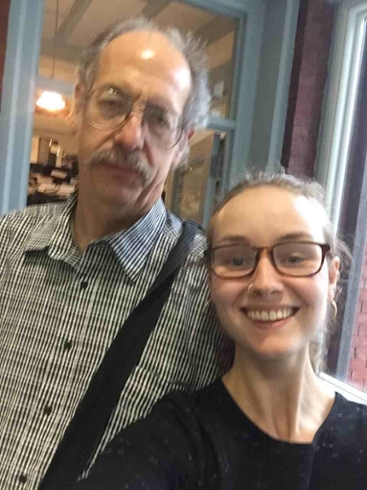
On a drizzly morning, the streets were dotted with umbrellas and suit-clad business people desperately holding newspapers above their heads. I realized I wasn’t in Portland anymore. Contra Portland’s laid back, “quirky” vibes, our nation’s capital buzzes with a different energy. The city teems with activity, as the foremost legal and political minds in the country face off daily.
I arrived in DC in early January to spend a week shadowing Paul Levy, a lawyer at Public Citizen. Within the small and highly collaborative litigation group at Public Citizen—a nonprofit whose stated goal is to champion citizen interests before Congress and the Courts—Paul specializes in first amendment, and more specifically internet speech, law, often representing anonymous clients.
I didn’t know what exactly I would be doing prior to my arrival at Citizen. Paul let me know that his caseload is unpredictable and I should come, not prepared for any particular thing, but for anything. Further, I would be working with another intern, Kendra, a 3L at Harvard Law School.
Continue reading Public Citizen Litigation: Elaine Andersen, Winter Shadow 2016
Oregon State Bar: Aliana Knoepfler, Winter Shadow 2016
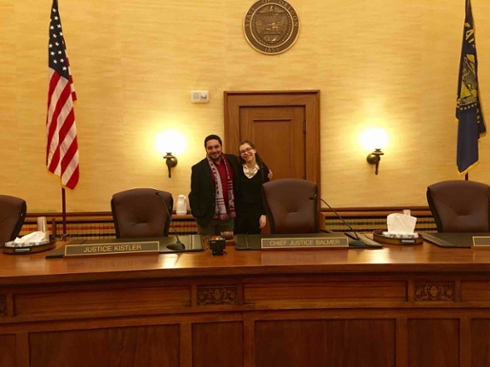
This January I was able to spend three days shadowing Amber Hollister, the General Counsel at the Oregon State Bar. I went into the experience with a strong interest in the connection between law and ethics, but actually knowing very little about how the rules that govern lawyers play out in real life.
On the first day of the shadow, I was able to learn about the role of the disciplinary counsel at the Bar and about the process that occurs when somebody files an ethics complaint against the lawyer. During the next two days, I was able to see how these ethics rules get put into practice. I met with law students, lawyers, and even judges, which was an invaluable opportunity.
One of the most meaningful parts of my winter shadow experience was being able to meet Multnomah County Circuit Court Judge Adrienne Nelson and sit in on one of her court proceedings. Afterwards, she generously met with us and discussed her own experiences as a judge and a lawyer. I also had the honor of meeting United States District Court Judge Michael Simon and Oregon Court of Appeals Judge Christopher Garrett, who both went out of their way to answer our questions and share their experiences with us.
Continue reading Oregon State Bar: Aliana Knoepfler, Winter Shadow 2016
Albuquerque Legal Aid, Dylan Holmes, Winter Shadow 2016
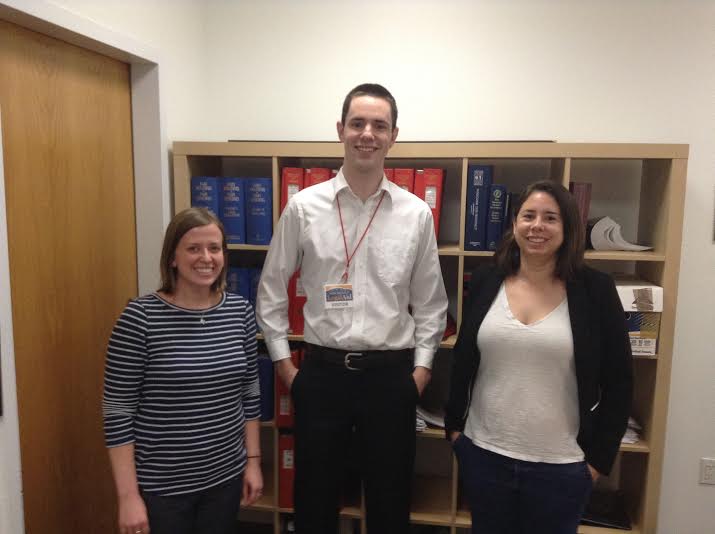
This winter I had the good fortune to shadow multiple attorneys working in the New Mexico Legal Aid Albuquerque branch. Legal Aid provides statewide civil legal service to vulnerable low-income clients and gives them varying degrees of legal advice and representation depending on the individual needs of each case.
Tiffany Sedillos (on the right in the photo) and Katie Withem (left in the photo), with the Foreclosure Defense Project, didn't just have me pushing papers and waiting until lunch break. Instead, I was given the opportunity to sit in on meetings with clients where I got to hear about the unique situations that brought people there and the surprisingly complicated chronology that comes before, during, and after a complaint for foreclosure. Afterwards, I talked to Tiffany or Katie about the specifics of each case and asked questions about how they might play out from a legal standpoint.
Continue reading Albuquerque Legal Aid, Dylan Holmes, Winter Shadow 2016
Citizenship and Legalization in Immigrant Communities: Portland based Immigration Advocacy, McGill Lawrence Internship Award, Francisca Garfia
This summer, McGill Lawrence Internship Award recipient Francisca Garfia, '17, Anthropology, worked with the portland-based immigrant rights organization CAUSA. Read ahead for her impressions:
As the daughter of Mexican immigrants, the struggle for legalization in the immigrant community has been central to my upbringing; I knew entire families who feared the separation of deportation, I had friends who were unable to attend college due to their legal status. This familiarity with the human side of illegal immigration led me to Causa, Oregon’s leading immigrant rights advocacy group. Causa services the Pacific Northwest immigrant community by educating them on their rights and opportunities for legalization. One way they do this is through community workshops; Causa provides access to legal forms and low cost attorneys since the legalization process is complicated and costly. The majority of my summer internship centered on a workshop, which not only served as a way to support the local immigrant community, but also pledged our solidarity to immigrant communities nationwide.
When I began planning this internship, President Obama had recently announced the expansion of DACA (Deferred Action for Childhood Arrivals) and DAPA (Deferred Action for Parents of Americans). Immigrants across the nation were abuzz with the news; if enacted, millions of undocumented immigrants would be legalized! However, the celebration was short lived as Texas and other states filed a lawsuit that prevented the implementation of the programs. As a result, immigrant advocacy groups that had hoped to help people become “DACAmented,” now had to focus their efforts on convincing the fifth circuit court that DACA was vital to these communities, and that these individuals were Americans despite their lack of documentation.
Continue reading Citizenship and Legalization in Immigrant Communities: Portland based Immigration Advocacy, McGill Lawrence Internship Award, Francisca Garfia
Center for Democracy and Technology, Reed Winter Externship Program, Eloise (Anqi) Chen

Anqi (Eloise) Chen, first-year psychology major, spent a week working with Center for Democracy and Technology (CDT) as her Reed’s winter externship program. CDT is a multinational nonprofit organization based in Washington, DC that aims to preserve the user-controlled nature of the Internet and champion freedom of expression.
The externship I took part in was not even listed on the Winter Externship Program page. Paul Alan Levy, an attorney in Washington, DC and also a Reed alumnus redirected me to Erik Stallman, who offered this opportunity. I highly appreciate the fact that they acknowledged my prior experiences in the legal industries back in my hometown Shanghai, China while reviewing my application.
CDT is located at Farragut Square, the center of a bustling business district in Capitol Hill. Like many other employers in D.C., I spent about an hour commuting from Silver Spring, Maryland to work every day. The first day I came to the firm, I was immediately struck by the sense of familiarity: an incredibly dynamic and efficient work environment as I have experienced in a law firm in Shanghai. A major and critical difference was that I would have to communicate out of my mother tongue. Despite the fact that I had done an extensive amount of preparation with the law-related aspects of the U.S., from watching Boston Legal to reading various articles, there were still more professional vocabularies and terms than those I had encountered in my life. You have to love challenges!
Continue reading Center for Democracy and Technology, Reed Winter Externship Program, Eloise (Anqi) Chen
Gregory Forman Family Law, Reed Externship Program, Aliana Knoepfler
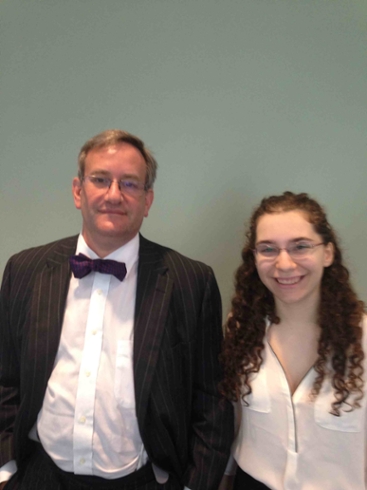
Aliana Knoepfler, sophomore psychology major, participated in the Reed externship program. She spent her spring break learning hands-on about family law in Charleston, South Carolina.
This spring break I externed with family law attorney Gregory Forman in Charleston, South Carolina. Going into the externship, I was not sure what to expect as I knew very little about family law but was nevertheless very interested in learning as much as I could. I was specifically interested in what day-to-day life is like for a lawyer.
For a week, I observed Mr. Forman meet with clients, review documents, attend mediation, visit court and more. I was surprised to learn such a great deal about family law and also discover how interesting it is and how greatly it differs from other areas of law. In addition to learning about family law, I was also interested in learning more about law in general. Before this externship, I did not know about the option of becoming a sole practitioner rather than working at a law firm. I was able to learn that there are benefits to being a sole practitioner, such as more control over one’s career as well as more flexibility.
Continue reading Gregory Forman Family Law, Reed Externship Program, Aliana Knoepfler
Public Citizen Litigation, Reed Winter Externship Program, Pedro Henriques Da Silva
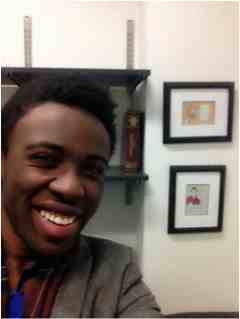
A Reed winter externship program participant, Pedro Henriques Da Silva, first year physics major, spent a week in Washington D.C. working with Paul Levy ’72 at Public Citizen Litigation Group
Paul Levy’s had a death in the family. He’d warned me this might happen, and now it has. I. Am. So. Sorry. And, in what will be a preview of his personality, he seems far more concerned with getting me all set up while he’s away, than I would ever expect given the circumstances. This is the beginning of an interesting and unexpected externship.
On the fifth of January I found my way to the office. I don’t know if it was the D.C. cold or the nervousness of the first day, but somehow I stepped out of the metro station and failed to see the large brick building with the “Public Citizen” banner at the top directly across the street from me. So for several unnecessary minutes, I followed my smart-phone guidance back the way I’d come until I realized my mistake. Inside I’m met with history, determination, and originality. I speak to the nice lady at the front desk who calls Peter Maybarduk and informs him that an intern named Pedro was here. She then directed me to the elevator around the corner and to go to the Attic.
Continue reading Public Citizen Litigation, Reed Winter Externship Program, Pedro Henriques Da Silva
Reed Winter Externship Reflections 14: Number Nineteen, Redden and Findling LLC, Luke Hackenberg
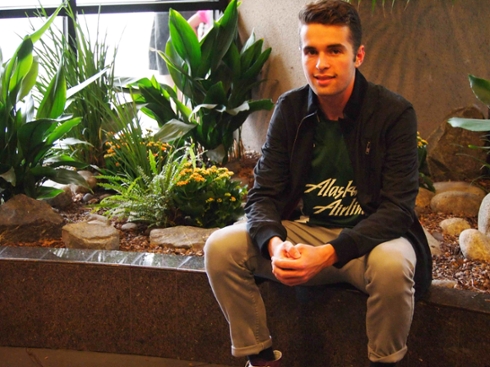
The experience I had with the Redden & Findling externship was a wonderful one. The people I met over the course of the week were phenomenal, being professionally informative as well as welcoming. I am completely satisfied with the knowledge I gained and I am grateful to the Redden & Findling firm as well as The Center for Life Beyond Reed for providing me with this opportunity.
The externship at the law offices of Redden & Findling seemed to be slightly different than the other externships offered, since it gave a firsthand look into the professional lives of a high-paced law office in East Portland. Traditionally, it’s quite difficult to find opportunities in the area of law as an undergraduate student because of the large pool of graduate law students around the country who are also competing for internships and employment. This externship is a rare experience and it should absolutely be taken advantage of if it continues to be offered.
The highly specialized nature of practicing law generally excludes most untrained students from participating, but Mike Redden found a great balance between observation and engagement that kept me interested for the duration of the week. Rather than have me do office work or simply sit and watch, he narrated almost all of his tasks to me so that I would have some idea of what was going on. All of this insider knowledge about the workings of law firms, estate planning and the ins-and-outs of the law code, combined with fanciful stories of the old days at Reed College, national bridge tournaments, and travelling across Europe made the week energetic and exciting. Unfortunately for Mike, he broke his femur weeks before and was confined to his home office, but it was better than ever for me – delicious lunches made by his wife and the company of two loving dogs by my side was more than I could ask for! His hospitality, willingness to answer all questions, and general light-heartedness showed me a side of law that I’d never seen before.
Continue reading Reed Winter Externship Reflections 14: Number Nineteen, Redden and Findling LLC, Luke Hackenberg
On Life, Learning, and the Law: an interview with Kali Borkowski, Class of 2010
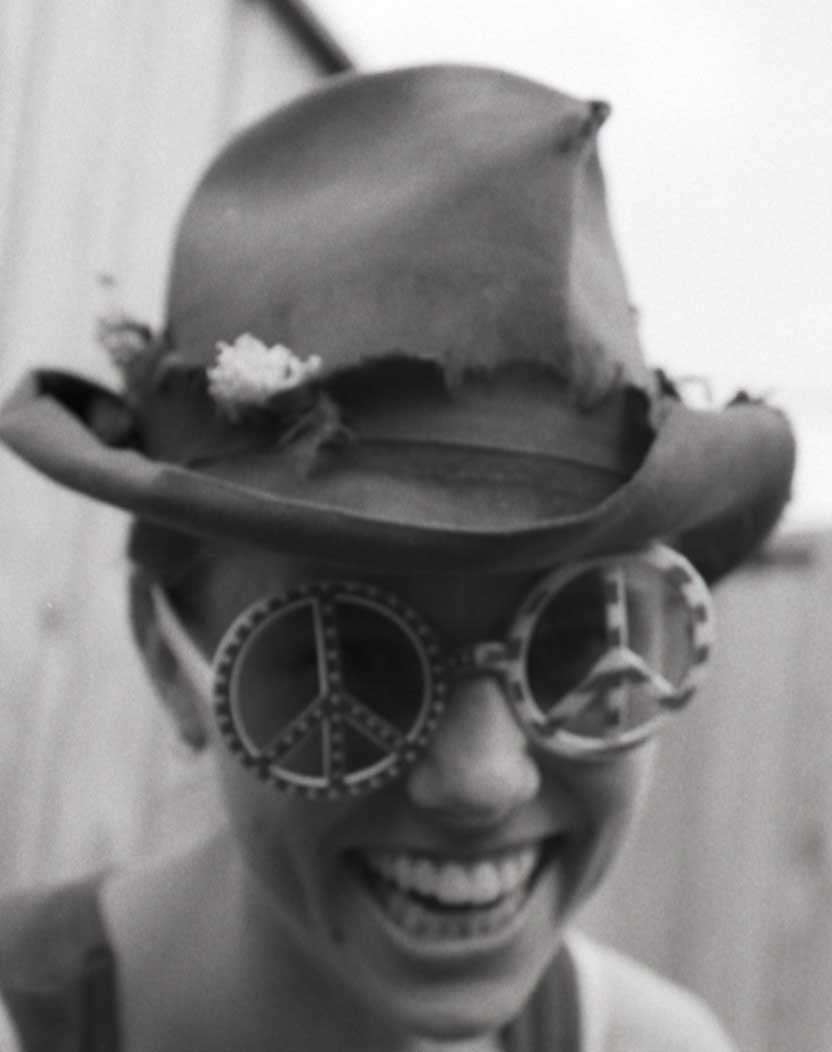
Kali is the manager of SCOTUSblog, a successful blog with a small staff dedicated to covering United States Supreme Court cases without bias. Kali manifests the spirit of Reed’s liberal arts education, and illuminates that practicing the perspective of “learning for the love of learning” has tangible, real-world value.
MW: Tell me a bit about what you do as manager of SCOTUSblog?
KB: I coordinate the content of the blog. The Supreme Court hears about 80 cases each year and we cover all of them. We also select about a dozen issues that we believe will have broad appeal and we have symposia, that I curate, on those topics.
